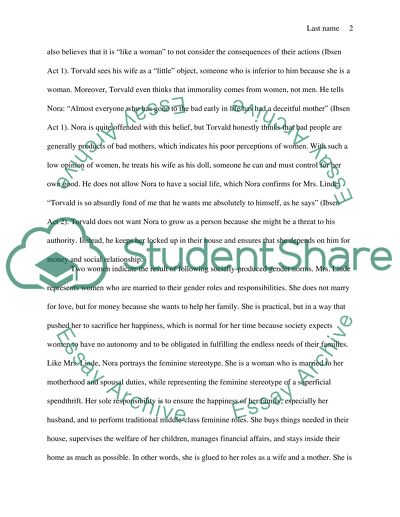Cite this document
(“Marriage as Entrapment for Men and Women in Ibsens A Dolls House Essay”, n.d.)
Retrieved de https://studentshare.org/english/1483230-marriage-as-entrapment-for-men-and-women-in-ibsens-a-dolls-house
Retrieved de https://studentshare.org/english/1483230-marriage-as-entrapment-for-men-and-women-in-ibsens-a-dolls-house
(Marriage As Entrapment for Men and Women in Ibsens A Dolls House Essay)
https://studentshare.org/english/1483230-marriage-as-entrapment-for-men-and-women-in-ibsens-a-dolls-house.
https://studentshare.org/english/1483230-marriage-as-entrapment-for-men-and-women-in-ibsens-a-dolls-house.
“Marriage As Entrapment for Men and Women in Ibsens A Dolls House Essay”, n.d. https://studentshare.org/english/1483230-marriage-as-entrapment-for-men-and-women-in-ibsens-a-dolls-house.


